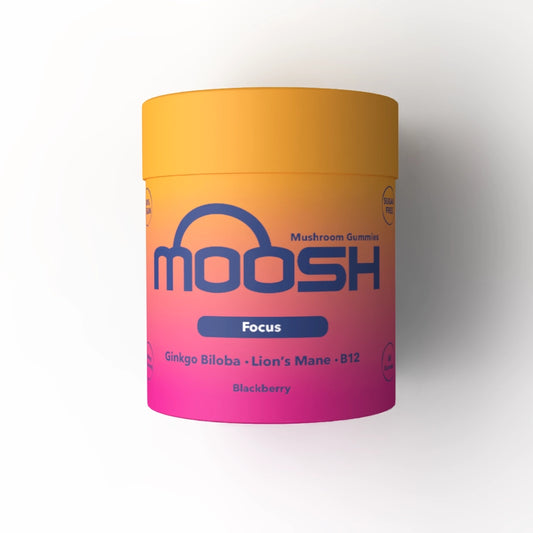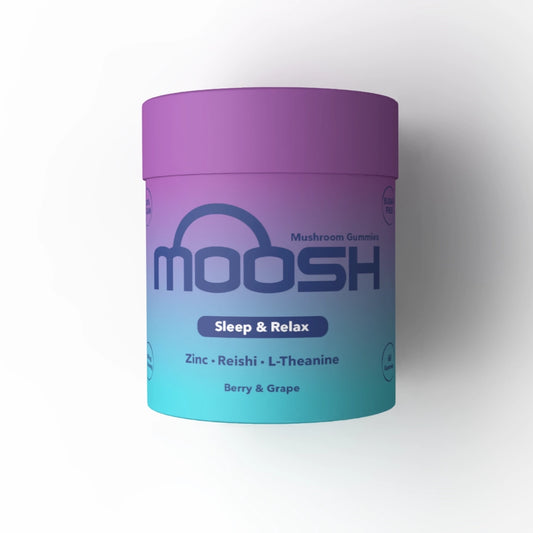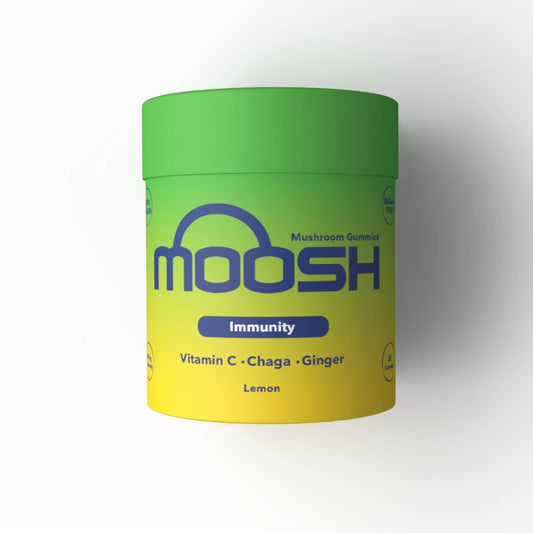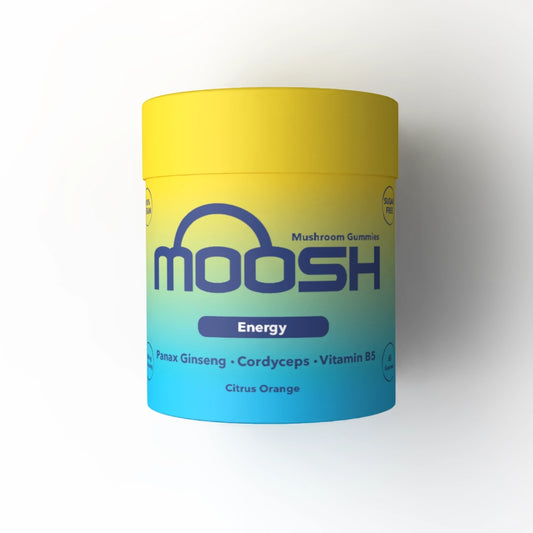Menopause, a natural biological process marking the end of a woman's reproductive years, often brings about a host of uncomfortable symptoms, including hot flashes, mood swings, insomnia, and cognitive decline. While hormone replacement therapy (HRT) has been the conventional treatment for managing these symptoms, concerns about its safety and efficacy have led many women to seek alternative remedies. In recent years, functional mushrooms, such as Lion's Mane, Chaga, Reishi, and Cordyceps, have gained popularity for their potential benefits in alleviating menopausal symptoms. In this article, we delve into the scientific research behind these mushrooms and their effects on menopause.
Understanding Menopause and its Symptoms
Before delving into the benefits of functional mushrooms, it's crucial to understand the physiological changes that occur during menopause and the associated symptoms. Menopause typically occurs in women between the ages of 45 and 55, marking the cessation of menstruation due to hormonal changes, particularly a decline in oestrogen levels. This hormonal shift can lead to a wide array of symptoms, including:
- Hot flashes and night sweats
- Mood swings and irritability
- Insomnia and sleep disturbances
- Cognitive decline and memory problems
- Vaginal dryness and discomfort
- Bone density loss and increased risk of osteoporosis
Given the multifaceted nature of menopausal symptoms, finding safe and effective treatments is paramount.
Functional Mushrooms and Menopause: An Overview
Functional mushrooms have been used for centuries in traditional medicine systems, such as Traditional Chinese Medicine (TCM) and Ayurveda, for their purported health benefits. Recent scientific research has begun to unravel the bioactive compounds present in these mushrooms and their potential therapeutic effects. Among the myriad of functional mushrooms, Lion's Mane, Chaga, Reishi, and Cordyceps have emerged as promising candidates for managing menopausal symptoms.
- Lion's Mane (Hericium erinaceus)
Lion's Mane mushroom, named for its striking resemblance to the mane of a lion, has garnered attention for its potential neuroprotective and cognitive-enhancing properties. Rich in bioactive compounds like hericenones and erinacines, Lion's Mane has shown promise in improving cognitive function and alleviating symptoms of anxiety and depression. For menopausal women experiencing cognitive decline and mood swings, Lion's Mane may offer relief by supporting brain health and neurotransmitter balance.
Studies have demonstrated that Lion's Mane extract may promote the production of nerve growth factor (NGF), a protein crucial for the growth, maintenance, and survival of neurons. By stimulating NGF synthesis, Lion's Mane could potentially mitigate cognitive decline associated with menopause and enhance overall brain function. Additionally, its anti-inflammatory and antioxidant properties may help protect against age-related cognitive impairment.
- Chaga (Inonotus obliquus)
Chaga mushroom, revered for its immune-boosting and antioxidant properties, has been used for centuries in Siberian and Russian folk medicine. Packed with bioactive compounds like beta-glucans, polyphenols, and triterpenes, Chaga exhibits potent anti-inflammatory, antiviral, and immunomodulatory effects. For menopausal women grappling with immune dysfunction and inflammation, Chaga may offer support by bolstering immune function and quelling systemic inflammation.
Research suggests that Chaga mushroom extract may help regulate immune responses by modulating cytokine production and enhancing natural killer (NK) cell activity. By strengthening the immune system, Chaga could help alleviate symptoms of fatigue, malaise, and susceptibility to infections commonly experienced during menopause. Furthermore, its antioxidant properties may neutralise free radicals and reduce oxidative stress, thereby protecting against cellular damage and premature ageing.
- Reishi (Ganoderma lucidum)
Reishi mushroom, also known as the "mushroom of immortality," holds a revered status in traditional medicine for its purported longevity-promoting and stress-reducing properties. Renowned for its adaptogenic qualities, Reishi contains an array of bioactive compounds, including polysaccharides, triterpenes, and ganoderic acids, which contribute to its diverse therapeutic effects. For menopausal women grappling with stress, anxiety, and hormonal imbalances, Reishi may offer solace by promoting relaxation, hormonal balance, and overall well-being.
Studies have shown that Reishi mushroom extract exhibits adaptogenic properties, helping the body adapt to stressors and restore homeostasis. By modulating the hypothalamic-pituitary-adrenal (HPA) axis and regulating cortisol levels, Reishi could attenuate the physiological and psychological manifestations of stress commonly experienced during menopause. Additionally, its hormone-modulating effects may help mitigate symptoms of hormonal fluctuations, such as hot flashes, mood swings, and sleep disturbances.
- Cordyceps (Cordyceps sinensis)
Cordyceps mushroom, revered for its energising and revitalising properties, has long been used in traditional Chinese medicine to enhance vitality and endurance. Rich in bioactive compounds like cordycepin, polysaccharides, and adenosine, Cordyceps exhibits potent adaptogenic, anti-fatigue, and cardioprotective effects. For menopausal women grappling with fatigue, reduced stamina, and cardiovascular health concerns, Cordyceps may offer support by boosting energy levels, enhancing physical performance, and promoting cardiovascular health.
Research suggests that Cordyceps supplementation may increase ATP production, improve oxygen utilisation, and enhance mitochondrial function, thereby enhancing cellular energy production and physical endurance. By optimising energy metabolism and oxygen delivery, Cordyceps could help alleviate fatigue and improve exercise tolerance in menopausal women. Furthermore, its cardioprotective properties may help regulate blood pressure, improve lipid profiles, and reduce the risk of cardiovascular diseases associated with menopause.
Moosh & Menopause
Functional mushrooms can be conveniently incorporated into one's daily routine through dietary supplements, offering a convenient and accessible way to harness their potential benefits. One such innovative product is Moosh, a brand that specialises in functional mushroom gummies. These gummies provide a tasty and easy-to-administer alternative to traditional supplement forms, making them suitable for women experiencing menopausal symptoms. However, it's essential for women to prioritise their health and well-being by seeking medical advice before incorporating any new supplement into their regimen, ensuring compatibility with existing medications and individual health needs.
Conclusion
Functional mushrooms, including Lion's Mane, Chaga, Reishi, and Cordyceps, hold immense promise in managing menopausal symptoms and promoting overall health and well-being. While further research is warranted to elucidate their mechanisms of action and optimal dosing strategies, existing evidence suggests that these mushrooms offer a safe, natural, and holistic approach to menopausal symptom management. Whether used alone or in combination with conventional therapies, functional mushrooms represent a promising avenue for empowering menopausal women to navigate this transformative phase of life with vitality and resilience.






